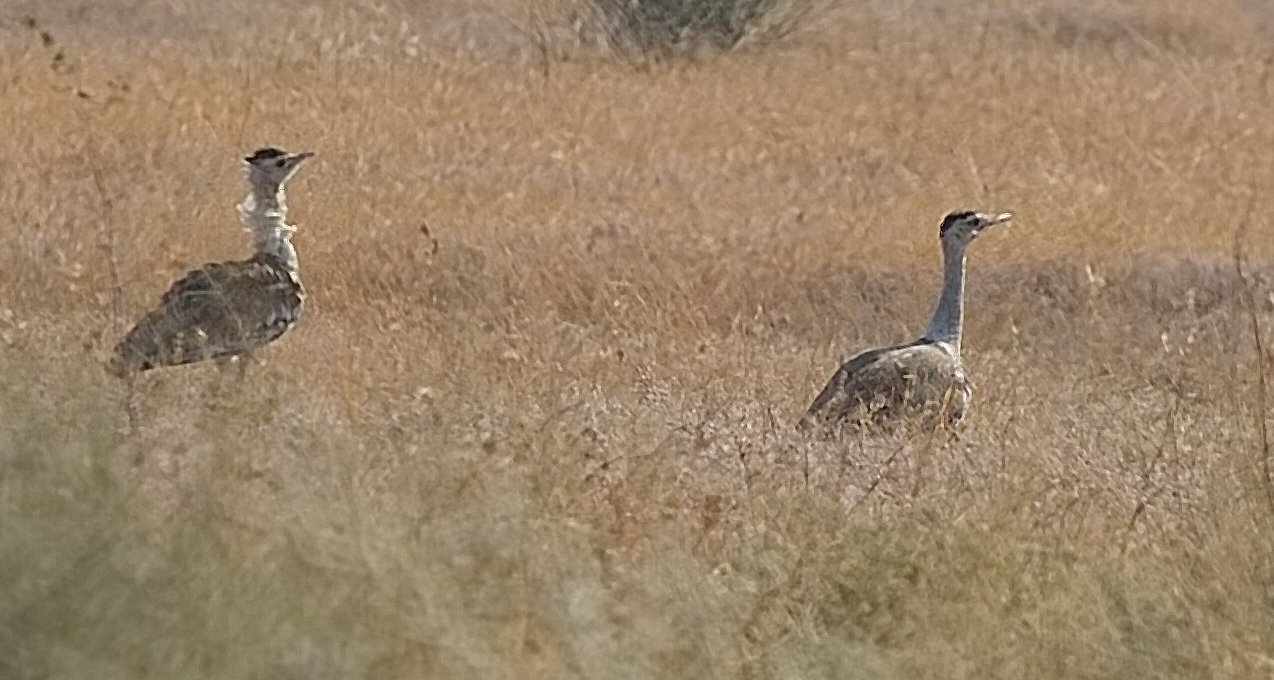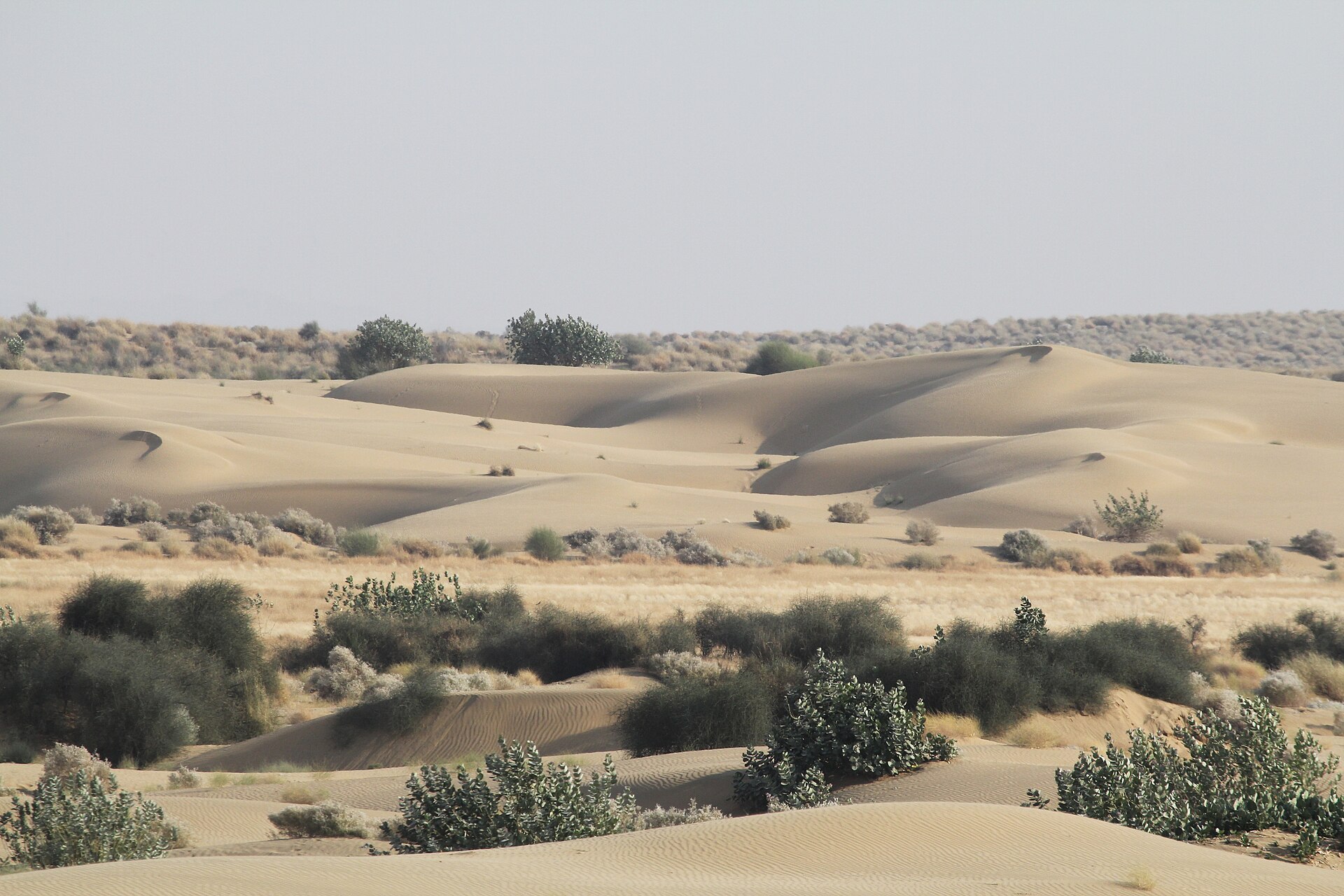.jpg/800px-SaurabhSawant_Bustard_Rajasthan_SAU_0136_(cropped).jpg) |
| Great Indian bustard |
A great Indian bustard recently died as a result of of hitting a high-tension wire at Ramdeora enclosure in Rajasthan's Jaisalmer district, making it the fourth bustard to have died in this way in the last one year. The death of this bustard has been attributed to the silence and carelessness of the authorities, which irritated wildlife enthusiasts and prompting them to climb up a high-tension wire pole to voice their protest. They eventually came down after a lot of persuasion. A wildlife enthusiast named Radheyshyam Pemani was the first to reach the spot where the bird had died and informed the authorities. The bird was found lying dead just 100 meters away from the high-tension wire pole it had hit while flying at night. According to Ashok Mehria, Deputy Conservator of Forests in Desert National Park, the bustard must have collided with the wires because of rains on Tuesday night. He further added that doctors were called on the spot, post-mortem was carried out, and the bird's body was disposed of. A report will disclose the bustard's death, but at first sight appears to have died after hitting the high-tension wires.
 |
| Bustard pair in Desert National Park, one of the last strongholds for this magnificent bird |
Y.S Jhala, a senior scientist from the Wildlife Institute of India (WII), stated that bustards were killed last year in three separate incidents after which the state government of Rajasthan demanded to install bird diverters in the birds' flight zone and two meetings were held with the Chief Minister, but till now, no action has been taken. He further added that the government should have done this work at the earliest by giving guidance to its officers and delay will only lead to the bustards' extinction. Rajasthan chief wildlife warden G.V Reddy affirming this said it is an urgent issue. He indicated that a letter was sent to the electricity department earlier demanding it to put bird diverters in the flight zone of the bustard, but the department did not take any action in this regard. He further added that another has been written to the department in this regard and it also included that if the work has not begun, then the forest department under the wildlife protection act will take action. Once again, the electricity department did not take the letter seriously and has not given any reply so far. Now, the forest department is going to write a letter as final reminder to the electricity company. As far as putting high-tension wire underground in bustard flight zone, it is impossible at present and huge amount will be needed, which is also not possible.
 |
| View of sand dunes in Desert National Park |
It deeply hurts me and enrages me to see that there has not been any action taken to save the great Indian bustard from extinction. Despite all the letters being sent to windmill companies and the electricity department on a repeated basis, no action has been taken by these establishments which goes to show that they are not taking the matter seriously by putting up bird diverters to prevent further loss of these magnificent birds. Silence and neglect is pushing the great Indian bustard closer and closer to extinction and that is something which will no longer be tolerated from here on. I urge the government of Rajasthan to take this issue seriously and act upon it at earliest without any sort of delay. The great Indian bustard is the state bird of Rajasthan and losing it to extinction at present will result in the state losing a significant portion of its culture and heritage. This also means that the new generation would never see a wild, free-roaming bustard in Rajasthan or anywhere in India. I urge the electricity department and windmill companies operating in Rajasthan to seriously act upon this issue and follow the suggestions requested by the forest department. Otherwise, wildlife enthusiasts and officials will be forced to take the windmill and electricity companies to court. I repeat...silence and negligence will NO LONGER BE TOLERATED!!!! The great Indian bustard is in dire need of help and it is time that the government should start acting upon it at the request of wildlife officials and the public.
View article here
No comments:
Post a Comment